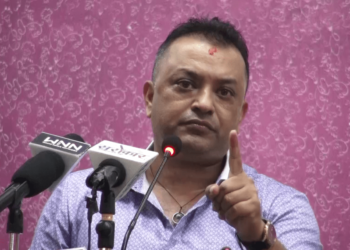In the midst of the growing climate crisis, the world can no longer rely solely on old models of economic development.
In this context, the concept of a bioeconomy – activities that produce relatively little carbon, using high-value-added processes – is gaining increasing prominence.
But governments and civil-society actors face differing institutional and economic obstacles on the path to a true bioeconomy.
Given historical and current global energy-consumption trends, some European and North American countries have taken seriously the goal of developing renewable energy sources.
With forged documents and the assistance of corrupt officials, these land-grabbers are able to claim ownership of these assets and sell them at a huge profit later.
On the other hand, some countries in the Global South, where agriculture represents the main source of greenhouse-gas emissions and biodiversity loss, face the challenge of establishing a bioeconomy based on new agricultural models.
In this regard, Brazil has a central part to play in mitigating the effects of climate change, in particular by conserving the rich biodiversity contained in the six vast biomes spanning its territory.
These include the largest portion of the Amazon rainforest, which plays a crucial role in stabilizing global rainfall cycles and producing oxygen, among other benefits.
Clearly, establishing a new model of agriculture and rural production will require strict state control over protected areas and prevention of illegal occupation of public land.
With the rate of deforestation in the Amazon reaching alarming levels in 2019, as well as during the current COVID-19 pandemic, a major systemic risk to the global climate balance is becoming clear.
To understand the history of Brazil’s agrarian development and the country’s prospects of establishing a sustainable twenty-first-century agriculture system, one must comprehend the state’s role in institutionalizing norms, rules, and protocols that contribute to the growth and decline of agricultural value chains.
For example, the soybean and cattle industries that have expanded across large parts of the Amazon and the Cerrado (another important Brazilian biome) since the mid-twentieth century benefited directly from tax incentives, fertilizer subsidies, access to credit, and research support for large-scale grain and beef production.
Unfortunately, government policies continue providing incentives for environmentally predatory agricultural value chains today, and the current Brazilian government’s increasingly reckless environmental policies make it likely that deforestation of protected areas will increase in the coming years.
University researchers and nongovernmental organizations have established that the rapid rate of deforestation in the Amazon in recent decades is mainly the result of speculators seizing control of vast public lands.
With forged documents and the assistance of corrupt officials, these land-grabbers are able to claim ownership of these assets and sell them at a huge profit later.
To boost economic returns and generate income, it is essential for community-based ventures to have better access to credit and microcredit.
In 2019, nearly 176 million hectares of private property were created on such land.
Clearly, establishing a new model of agriculture and rural production will require strict state control over protected areas and prevention of illegal occupation of public land.
But better mechanisms to control and punish illegal activities in protected and public areas will not be enough to stimulate the economic use of biomes and their assets, as set out in Brazil’s 2009 National Plan for the Promotion of Socio-Biodiversity Value Chains.
It is also necessary to create and promote the legal terms, incentives, protocols, and commercial and technological partnerships to support both business capital and community-based ventures associated with the bioeconomy.
If capitalism is based on expectations, then the desired expansion of the bioeconomy depends on the existence of a wide range of functioning institutions, capable of supporting expectations of high returns among the different agents interested in Brazilian biodiversity value chains.
Value creation for forests and other biological assets includes activating fair-trade protocols between private firms and community-based enterprises; facilitating access to information about important agrarian policies such as minimum-price guarantees for biodiversity products; forging a better legal apparatus for rural cooperatives; and developing technological innovations appropriate for traditional communities’ productive and socio-cultural context.
The significant financial and human-capital investments needed to create sustainable value chains will materialize only when the current uncertainty regarding their future economic viability is replaced by positive expectations.
Other priorities include reducing red tape in the extension of rural credit to producers of biodiverse assets such as Brazil nuts, baru, and copaiba: whereas soy producers in the state of Pará (one of the largest in the Amazon) received over R$6.5 million ($1.2 million) in 2018-19 from the public credit line for family farming, producers of Brazil nuts received only about R$260,000.
To boost economic returns and generate income, it is essential for community-based ventures to have better access to credit and microcredit.
Building a durable Brazilian bioeconomy will require strategic links among community-based enterprises, investors, companies, and technology developers, embedded in robust, functioning institutions.
The significant financial and human-capital investments needed to create sustainable value chains will materialize only when the current uncertainty regarding their future economic viability is replaced by positive expectations.
By establishing a firm institutional foundation of “virtuous incentives,” therefore, Brazil can offer the world an innovative new agricultural model to help tackle climate change.
(Pedro Frizo is an economist and associate at Instituto Conexões Sustentáveis – Conexsus, an NGO focused on developing rural and forest enterprises that conserve biomes in Brazil)
Copyright: Project Syndicate, 2020









Comment